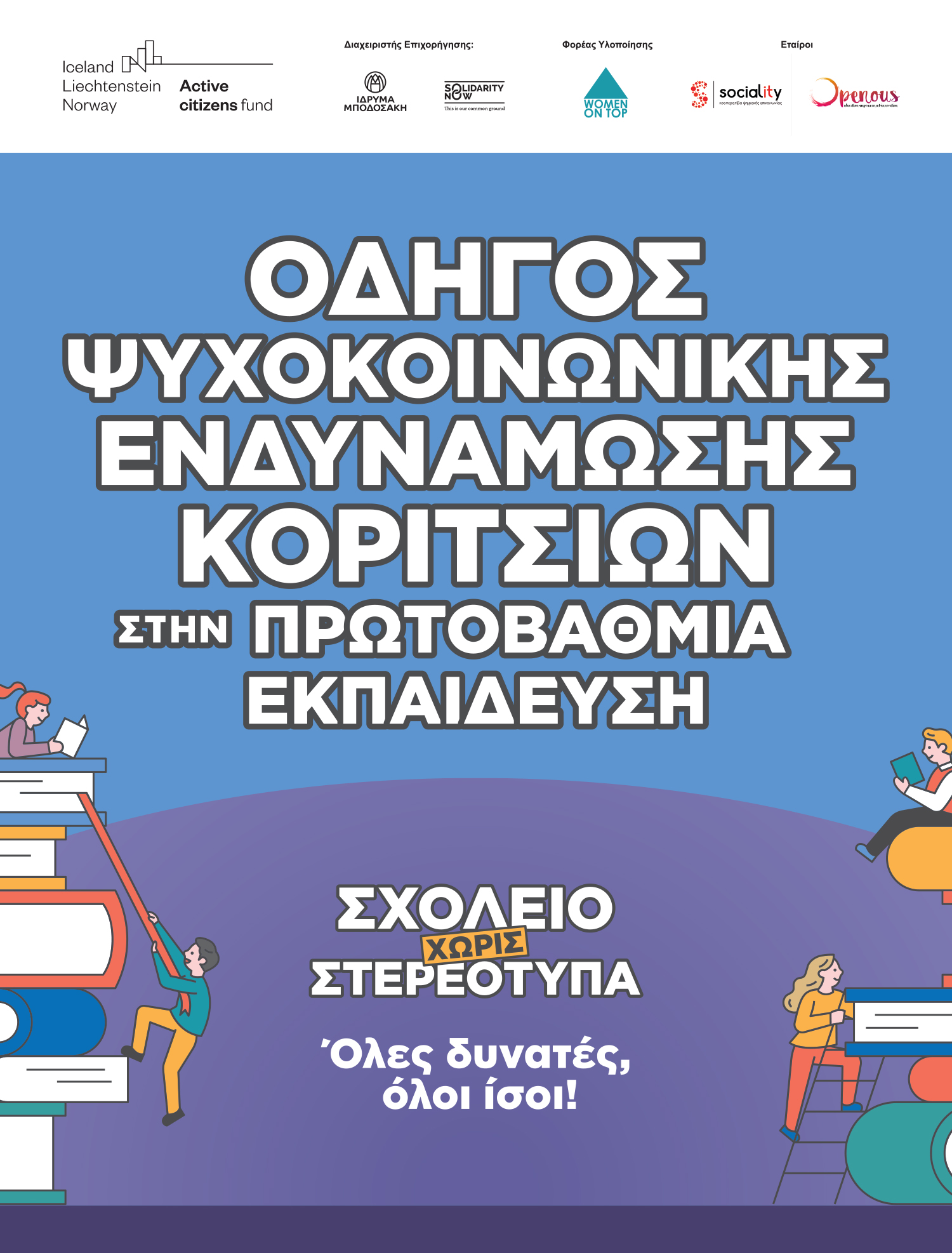
The guide for the “Psychosocial Empowerment of Girls in Primary Education” is addressed to teachers of secondary education and is part of the project “School of No Bias”, which was implemented within the framework of the Active citizens fund program, with Women On Top as the implementing body and Sociality and Openous as partners.
In this guide, we focus on the training of Primary Education teachers regarding the development of the psychosocial empowerment of their students through the teaching of their courses.
More specifically, the first part of the guide is about the necessity of psychosocial empowerment for girls, the psychosocial skills that girls overdevelop and those that they underdevelop, the contribution of school to the development of these skills, the school reality that girls face in the 21st century and finally, clarifying the term “confidence gap” and how this gap affects girls.
The second part of the guide concerns the definition, the importance and ways of developing the following psychosocial skills: a) Mental Resilience, b) Identity and Self-Awareness, c) Self-Confidence and Self-Esteem, d) Personal Saboteur Management, e) Self-Compassion and Awareness, f ) Personal Limits, h) Stress Management and i) Communication Skills.
The third part of the guide includes a brief introduction to boys and the psychosocial skills they develop, and finally, the fourth part of the guide provides additional informational material, as well as supporting material with learning activities, which teachers can use in their lessons. The aim of this guide is to acquaint Secondary Education teachers with tools to empower girls in skills that their current treatment by the educational system does not help them to develop.
The project “School of No Bias” is implemented in the framework of the Active citizens fund program, with Women On Top as the implementing body and Sociality and Openous as partners. The Active citizens fund program, amounting to €13.5 million, is financed by Iceland, Liechtenstein and Norway and is part of the financial mechanism of the European Economic Area (EEA) for the period 2014 – 2021, known as EEA Grants. The program aims to strengthen and strengthen the sustainability of civil society and to highlight its role in promoting democratic processes, strengthening citizens’ participation in society and defending human rights. The management of the grant of the Active citizens fund program for Greece has been jointly undertaken by the Bodosaki Foundation and SolidarityNow. Read more here: www.activecitizensfund.gr
“The views expressed herein are the personal views of the editor and do not necessarily reflect the views of the EEA Financial Mechanism or the Grant Manager of the Active citizens fund Program in Greece (Bodosaki Foundation in collaboration with SolidarityNow)”.

